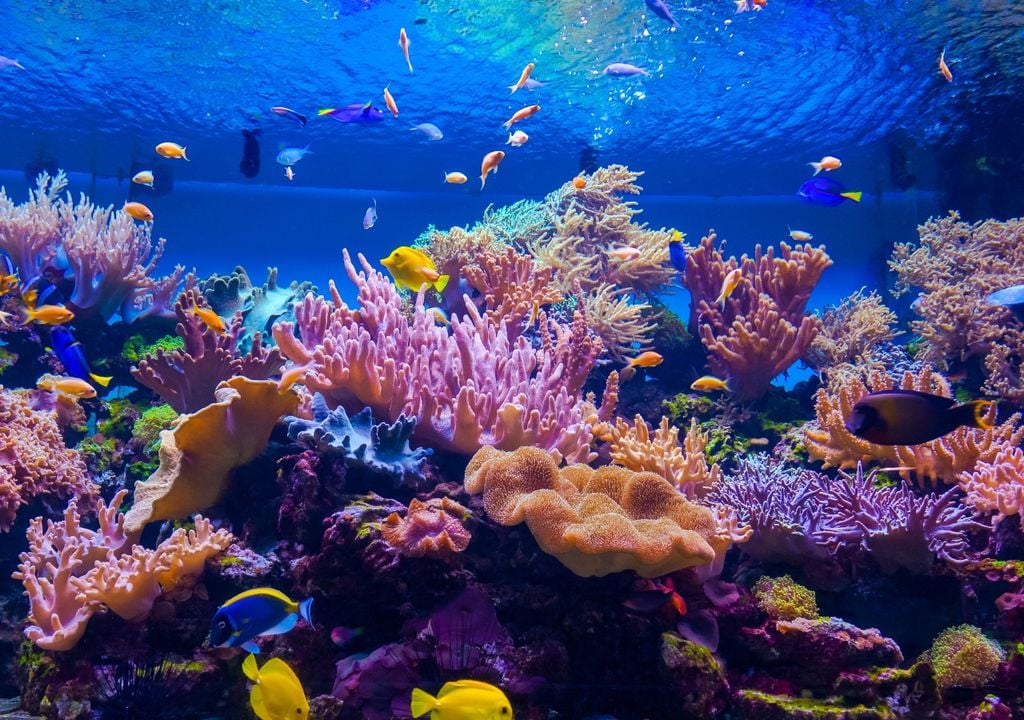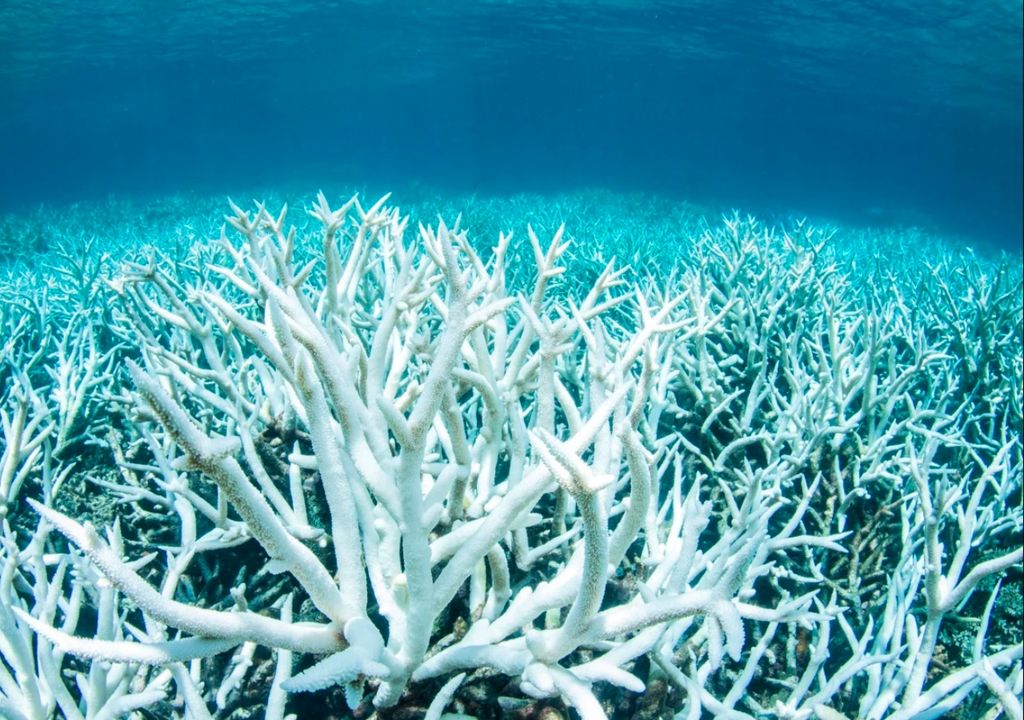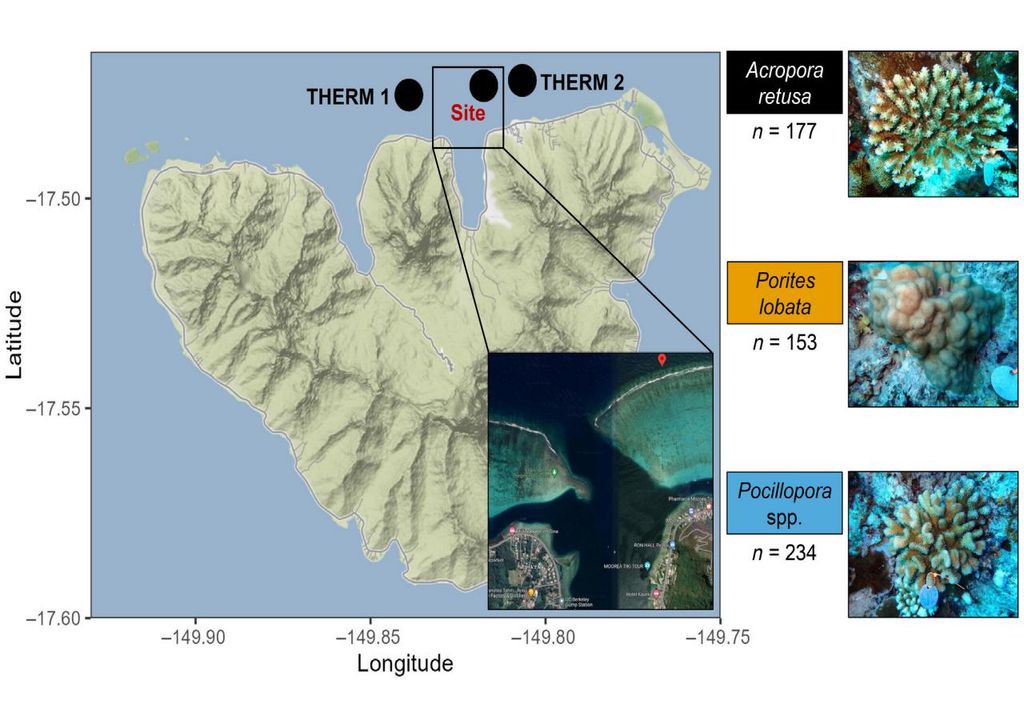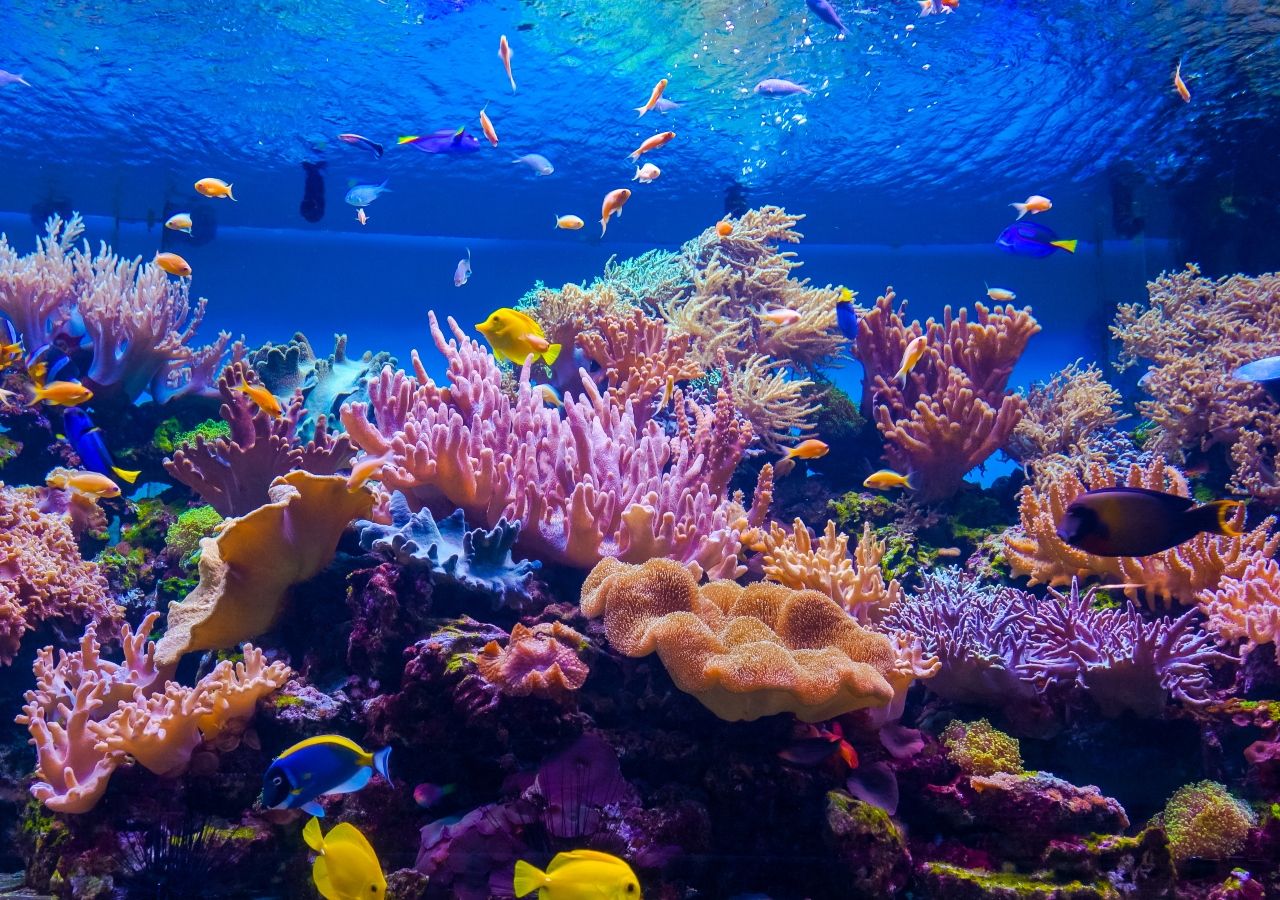
One of the many negative consequences of global warming is the increased vulnerability of ecosystems, including marine ecosystems, e.g Coral reefs. Although they occupy less than 1% of the ocean, coral reefs It is home to nearly a quarter of all marine speciesIn addition, it plays an important role in regulating the concentration of carbon dioxide (CO2) in the ocean.
The warming of the oceans has caused an effect known as Coral bleaching In different regions of the planet. Bleach It occurs when corals lose photosynthetic microalgae called zooxanthellaepresent in the tissues that cover it.
These microalgae maintain… Symbiotic relationship with coral reefsWhere they carry out photosynthesis Releasing nutritious organic materials for coral reefs In turn, corals, through their metabolic processes, provide the nutrients necessary for the survival and growth of zooxanthellae.

When coral suffers from extreme heat, it loses these microalgae and its tissues become transparent. Leaving the white color of her skeleton exposed. Although it does not necessarily cause coral reefs to die, this bleaching leaves them more fragile and more likely to die.
For this reason Rising ocean temperatures and increased occurrence of marine heatwaves are putting this important element of the ecosystem at riskAs is the case with the Great Barrier Reef in Australia. However, researchers have discovered that some types of coral will be able to withstand higher temperatures, which creates some hope!
Some corals survive the heat using memory!
One Recent study This was revealed led by scientists from Oregon State University in the United States Certain types of coral have the ability to withstand marine heat waves by “remembering” events that occurred in the past. This phenomenon is known as “Environmental memory” It appears to be associated with microbial communities living in coral reefs.
You The researchers examined 200 coral colonies between 2018 and 2020, containing 3 coral species.on a reef off the northern coast of Moorea, French Polynesia, which experienced drastic environmental changes in 2010 due to natural disasters and also suffered two very intense heat waves in 2019 and 2020.
Acropora retusa, a widespread coral species on Mo'orean reefs, shows a strong ecological memory response to heat waves, suggesting greater resilience to climate change than previously thought, Alex Fomby, lead author of the study, told the news site. Earth.com.
The study authors noted that some coral species tolerated subsequent heat waves better, likely due to exposure to past events. Acropora retusa is one species that has shown a memory response to heat wavesa response linked to changes in your microbiome.

“The memory response in Acropora retusa was strongly linked to changes in its microbiome, supporting the idea that the microbial community plays a role in this process,” Vega-Thurber said. Earth.com, also author of the study. You Corals of Pocillopora species have also shown their ability to withstand heat To remember past events.
In this way, in addition to better understanding and highlighting the importance of the symbiotic relationship between coral ecosystems, The study sheds light on possible strategies for coral reef conservationDue to the possibility of global temperatures rising and the frequency and intensity of marine heat waves increasing.
News reference:
Vompe, AD, Epstein, HE, Speare, KE, Schmeltzer, ER, Adam, TC, Burkepile, DE, Sharpton, TJ, & Vega Thurber, R. (2023). Microbiome environmental memory and responses to recurrent marine heat waves explain variation in coral bleaching and mortality. Biology of Global Change, 30, e17088. https://doi.org/10.1111/gcb.17088

“Wannabe internet buff. Future teen idol. Hardcore zombie guru. Gamer. Avid creator. Entrepreneur. Bacon ninja.”

